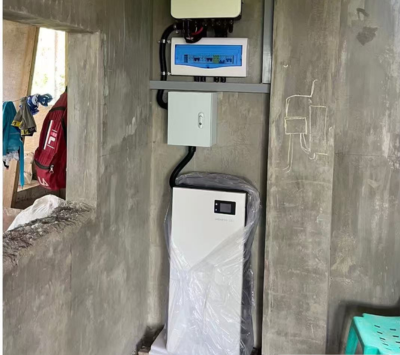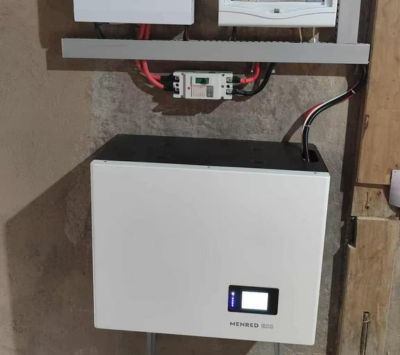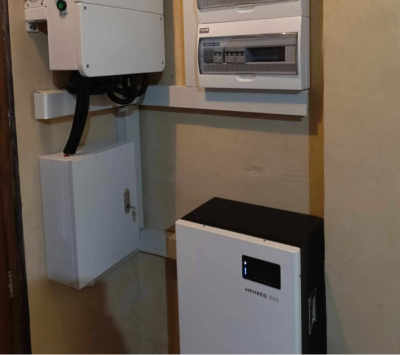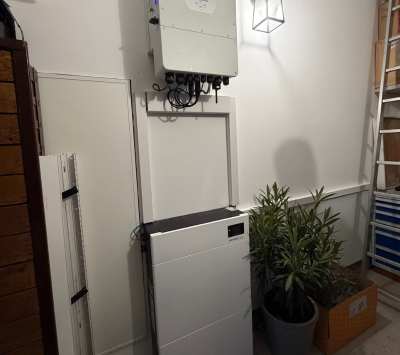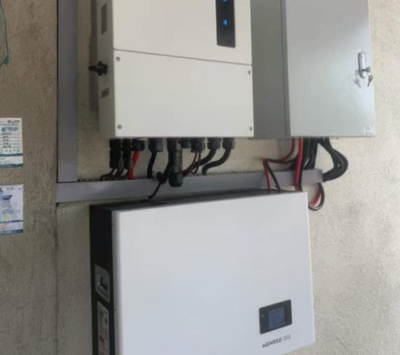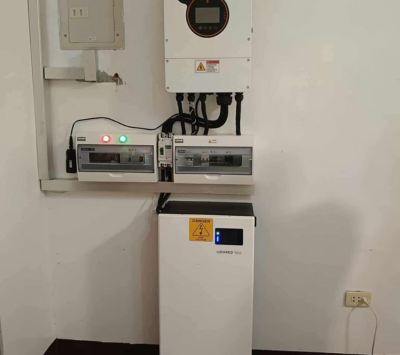Introduction
In an era where renewable energy and sustainability are paramount, modular lithium ion batteries have emerged as a critical technology for energy storage. Their flexibility, efficiency, and safety make them a top choice for both residential and commercial applications. Among leading manufacturers, Menred ESS stands out with its innovative energy storage products that incorporate cutting-edge modular design and advanced safety features. This article will explore the fundamentals of modular lithium ion batteries, highlight the benefits of solutions like those offered by Menred ESS, delve into key applications, and showcase real-world installation cases from Menred ESS customers.
What Are Modular Lithium Ion Batteries?
A modular lithium ion battery is an energy storage system made up of multiple battery modules that can be connected to scale power capacity up or down according to energy needs. Each module contains lithium ion cells, which are optimized for high performance and safety. The modular design allows for flexible system configurations, catering to a variety of residential and commercial energy requirements.
Unlike traditional fixed-capacity batteries, modular lithium ion batteries offer an adaptable approach. Users can add or remove modules as their energy needs change, avoiding the significant costs associated with system overhauls.
How Do Modular Lithium Ion Batteries Work?
The operation of modular lithium ion batteries involves the movement of lithium ions between the anode and cathode during charging and discharging cycles:
- Charging Process: Lithium ions move from the cathode to the anode, storing energy in a high-energy state.
- Discharging Process: The ions move back to the cathode, releasing energy for use.
- Modular Configuration: Multiple modules, each with their own cells, are linked and monitored through a battery management system (BMS) that balances charge levels, enhances safety, and ensures optimal performance.
This modular approach allows users to customize the voltage, capacity, and overall system performance. Menred ESS systems integrate these principles, adding advanced safety features and reliable control mechanisms.
Advantages of Modular Lithium Ion Batteries
The benefits of modular lithium ion batteries extend beyond basic energy storage capabilities. They offer unique advantages that make them an essential part of modern energy solutions:
1. Scalability and Flexibility
One of the primary advantages of modular lithium ion batteries is their scalability. Whether for residential homes needing limited backup power or larger commercial facilities requiring extensive storage, modules can be added or removed with ease. Menred ESS products exemplify this flexibility, allowing for seamless capacity expansion to meet growing energy demands.
2. High Energy Density
Lithium ion batteries are renowned for their high energy density, meaning they can store more power in a compact space. This makes them ideal for locations with limited space, ensuring robust power capabilities without requiring large installation areas.
3. Efficiency and Performance
Modular lithium ion batteries boast high round-trip efficiency, often exceeding 90%, which minimizes energy loss during charging and discharging. This efficiency maximizes energy utilization and contributes to cost savings over time.
4. Advanced Safety Measures
Safety is a critical concern with any battery system. Menred ESS products incorporate comprehensive safety measures, including high-quality BMS and thermal management systems, to prevent issues like overheating, overcharging, or short-circuiting. These safety protocols make modular lithium ion batteries suitable for both home and industrial use.
5. Longevity and Reliability
With proper maintenance, modular lithium ion batteries can achieve over 6,000 charge cycles, resulting in a lifespan that significantly reduces replacement frequency. Menred ESS batteries are designed for long-term use, ensuring a stable power supply over years of operation.
6. Easy Maintenance
The modular nature of these systems allows for straightforward maintenance. Individual modules can be serviced or replaced without disturbing the entire system, which is a cost-effective and time-saving advantage for users.
Key Applications of Modular Lithium Ion Batteries
Modular lithium ion batteries are versatile, finding applications in numerous areas:
1. Residential Energy Storage
Homeowners use modular lithium ion batteries to store surplus energy generated by solar panels. This stored energy can then be used during cloudy days or at night, reducing dependency on the grid and lowering energy costs. Menred ESS systems are particularly valued for their ease of integration and performance reliability in residential settings.
2. Commercial and Industrial Use
Businesses use these systems to manage energy more efficiently. They provide backup power during outages and reduce peak demand charges by drawing on stored energy. Industries with critical power needs benefit from the stability and expandability that modular systems provide.
3. Backup Power Solutions
In regions prone to power outages, modular lithium ion batteries serve as reliable backup sources. They can power essential appliances and systems during blackouts, ensuring minimal disruption. The modular design allows customers to scale their backup capacity based on their specific needs.
4. Renewable Energy Integration
Renewable sources like solar and wind often face variability in power generation. Modular lithium ion batteries store excess energy during peak production times and release it when production is low. This improves the reliability of renewable energy and supports a more balanced power grid.
5. Grid Stabilization and Load Shifting
Utility companies can use modular lithium ion batteries for grid stabilization by storing energy when demand is low and releasing it during peak periods. This practice, known as load shifting, helps balance the grid and reduces the risk of blackouts.
Real-World Installations: Menred ESS Success Stories
Menred ESS has implemented modular lithium ion battery systems in various real-world scenarios that highlight their effectiveness:
Case Study 1: Residential Solar Storage
A family in Germany installed a Menred ESS system to complement their solar panels. The modular configuration allowed them to store energy during the day and use it at night, significantly cutting down their electricity costs and providing backup power during outages. The installation was straightforward, thanks to the scalable design, and the system has proven reliable over the years .
.
Innovations in Modular Lithium Ion Battery Technology
Ongoing technological advancements continue to refine modular lithium ion battery systems. Menred ESS remains at the forefront, incorporating these improvements into their products:
1. Enhanced Battery Management Systems (BMS)
The latest Menred ESS models feature advanced BMS that monitor real-time performance and health of each module. These systems prevent overcharging, overheating, and deep discharging, which are crucial for extending battery life and maintaining safety.
2. Integrated Energy Management Systems (EMS)
Menred ESS uses sophisticated EMS to optimize energy usage by balancing the input and output across all connected devices. This technology ensures efficient energy distribution, even in complex energy ecosystems involving multiple renewable sources.
3. IoT and Smart Monitoring
IoT capabilities allow users to monitor and manage their battery systems remotely. Menred ESS offers mobile apps and web platforms that provide data on charge levels, performance, and any potential issues, empowering users to optimize their energy usage from anywhere.
Addressing Challenges in Modular Lithium Ion Batteries
While modular lithium ion batteries offer numerous benefits, they face some challenges:
1. Initial Cost
The upfront cost of modular lithium ion battery systems can be high. However, Menred ESS products are designed to offer long-term savings through durability, efficiency, and reduced maintenance needs.
2. Supply Chain Concerns
The reliance on lithium and other raw materials poses potential supply chain issues. Menred ESS is actively working to incorporate sustainable practices and explore alternative materials to mitigate these challenges.
3. Performance in Extreme Conditions
Lithium ion batteries can be sensitive to extreme temperatures, which may affect their efficiency. Innovations in thermal management are essential to ensure consistent performance across different climates.
Future Prospects for Modular Lithium Ion Batteries
The future of modular lithium ion batteries looks promising, with several key trends shaping the landscape:
1. Greater Sustainability Initiatives
As environmental awareness grows, future systems will incorporate more sustainable materials and improved recycling processes. Menred ESS is committed to advancing eco-friendly practices to make their products more sustainable.
2. Integration with Smart Energy Grids
Modular lithium ion batteries will play a critical role in the development of smart energy grids. Their adaptability and capacity for seamless integration make them ideal for dynamic energy management.
3. Expansion into New Markets
Modular battery systems are expanding beyond residential and industrial sectors to new applications, such as portable energy solutions for outdoor use and emergency response setups.
Conclusion
Modular lithium ion batteries are at the heart of the future of energy storage, offering scalable, efficient, and safe solutions. With leaders like Menred ESS pushing the boundaries of technology, these systems are set to become even more integral to residential, commercial, and renewable energy applications. Through real-world examples and continuous innovation, Menred ESS demonstrates that modular lithium ion batteries are not just a trend but a cornerstone of modern energy strategies.

